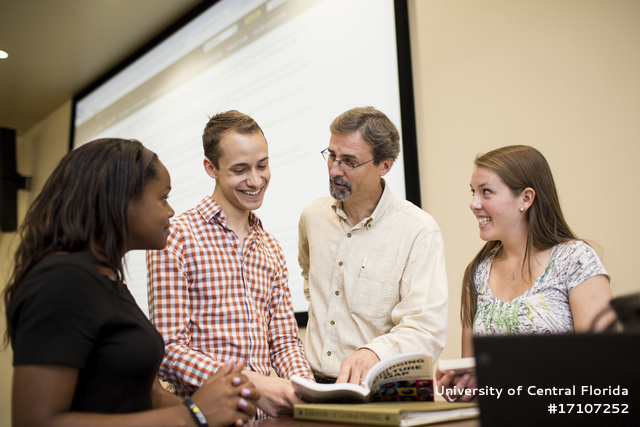Postdoctoral Professional Development
Postdoctoral Professional Development

UCF Programs
The College of Graduate Studies works with partners across campus to provide programming specifically for Postdoctoral Scholars. Postdocs can take advantage of the various opportunities offered through various UCF units.
American Association of University Women (AAUW)
The AAUW offers a free online Work Smart course that teaches negotiating skills and important facts about the status of the gender pay gap. The program aims to empower women across the country to negotiate for a raise, promotion, or new job.
National Postdoctoral Association
UCF is a sustaining member of the National Postdoctoral Association (NPA), which can help you connect with the broader postdoctoral community and provides many excellent resources. UCF encourages your participation through a free membership.
NPA Competencies
The National Postdoctoral Association has identified six core competencies for postdoctoral scholars. These competencies serve as a guide for the scholar through self-assessment and planning of goals for training and skills they wish to enhance or acquire during their postdoctoral experience.
Since competencies often overlap and affect each other, “the most effective use of the NPA Core Competencies may be to identify and focus on development in areas that will lead to growth in more than one competency” (The NPA Postdoctoral Core Competencies, pp. 2-3). For each competency, NPA offers extensive guidance as well as reading lists.
Individual Development Plan
An Individual Development Plan (IDP) is a written proposal of goals for personal and professional development. Creating an IDP helps postdoctoral scholars evaluate current skills, interests and strengths; create a plan for developing skills for meeting academic and professional goals; and communicate these goals with their mentors. Faculty mentors can assist their postdoctoral scholars in refining their goals and creating an action plan to measure their progress.
It is recommended that all postdoctoral scholars complete an IDP with their mentor and revisit it annually. Below you will find helpful resources from professional societies, academic institutions, and UCF.
Postdoctoral scholars who are UCF Preeminent Postdoctoral Program (P3) recipients are required to create an IDP and report annually on their progress to the College of Graduate Studies.
IDP Resources
- American Association for the Advancement of Science (AAAS)
- American Psychological Association (APA)
- American Psychological Association (IDP video tutorials)
- Imagine PhD (Humanities and Social Sciences)
- National Institutes of Health (NIH) Guidelines for IDP
- National Postdoctoral Association (NPA) Core Competencies
- U.S. Department of Commerce IDP for Business Students
UCF Services
Postdoctoral scholars can find support through a variety of UCF services and programs.
Office of Research
- Grant Development Series Webcourse
- Research Development, including assistance finding funding opportunities and preparing proposals
- Research Integrity and Compliance
College of Graduate Studies
- Pathways to Success, (free workshops on a variety of topics to help build your skills)
- Preeminent Postdoctoral Funding Travel Authorization, this form is for use only by Postdocs who are or were funded by the P3 program.
UCF Libraries
Environmental Health and Safety
Faculty Center for Teaching and Learning
UCF Global
- English Speaking Testing and Oral Communication for Internationals, English Language Institute
Career Services
- One-on-one counseling sessions and mock interviews – call 407.823.2361 to schedule
- Workshops, in Pathways to Success